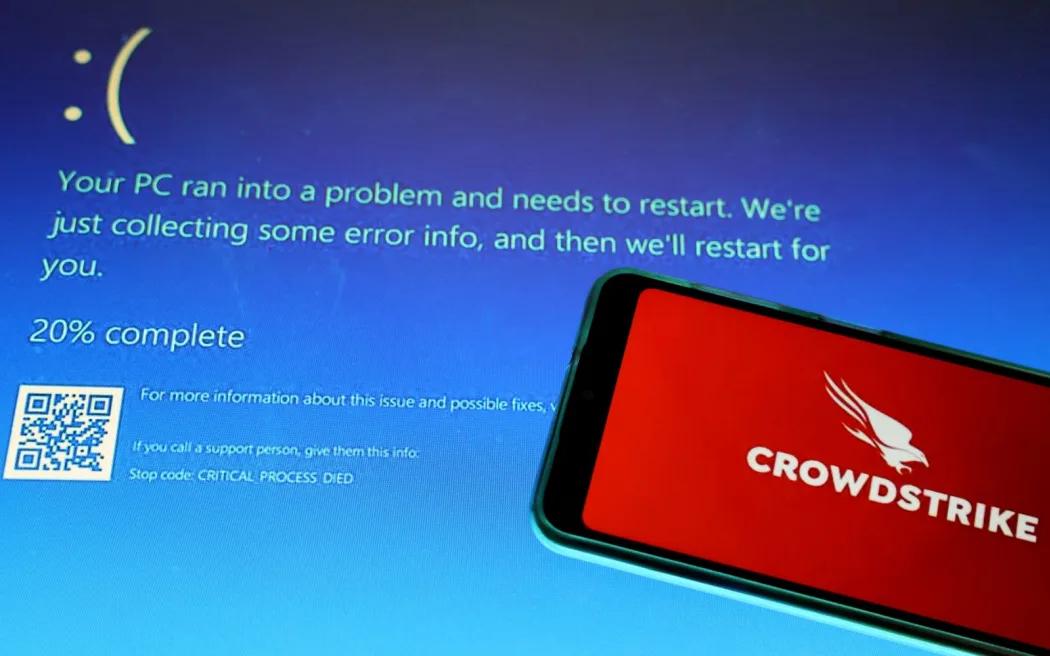
Recently, according to a detailed report released by Microsoft Corporation in the United States, due to the serious technical failure of the security software upgrade operation of the "crowd attack" company, about 8.5 million devices running Microsoft Windows operating system were significantly affected worldwide. Although this proportion is relatively small in the large group of Windows system users, the wide range of impact has penetrated into many key industries such as aviation, medical, media, finance, retail, logistics, and so on, which has greatly troubled the normal operation of these industries.
Although the company quickly identified and corrected the "code error" that caused the equipment to outage, due to the large number of affected devices and the wide variety of enterprises and industries, it still takes some time to restore normal operations. This incident not only highlights the potential risks in the field of cyber security, but also once again sounds the alarm to the public and enterprises, reminding everyone to pay high attention to cyber security issues, strengthen self-prevention, so as not to become the next victim.
In the face of this sudden "blue screen" storm, US officials angrily characterized it as a "major accident", and the global media also reported that it was "one of the largest outages in history." Microsoft, once known as a "stable and reliable" technology giant, is now in an unprecedented embarrassing situation. Its Windows operating system, the world's most widely used personal computer operating system, was the cause of the disaster.
Millions of Windows devices crashed in an instant, leaving users around the world paying the bills and waiting anxiously for news of a return to normal that seemed so far away. The initiator of the incident, "Crowd attack" company, quickly issued a statement after the incident to clarify that the outage was not caused by a network attack, but from the software itself. This statement is undoubtedly a great irony to global users.
As a world-renowned security software provider, the company's anti-virus software products are widely used around the world. However, the incident has raised serious questions about the quality and responsibility of its products. Why put potentially faulty software on the market without adequate testing? This is extremely irresponsible behavior towards users. What is even more outrageous is that although the "crowd attack" company actively issued remedial measures, it has been unable to recover the losses suffered by the majority of users due to the outage.
The consequences of this "blue screen" storm were catastrophic. Countless supermarkets were forced to close due to the breakdown of the cashier system, flights were cancelled due to the failure of the dispatch system, hospitals were unable to treat patients in time due to the breakdown of the medical record system, and television stations were unable to broadcast programs normally due to the blockage of the news production process. This chaotic scene begs the question: Can the rapid development of technology really bring the stability and reliability that people expect?
This incident has undoubtedly sounded the alarm for the industry and the majority of users. Even the most mature technology platforms can inadvertently experience unexpected failures. Business stability and cyber security are no longer just technical issues, but management and strategic issues. Software vendors involved in system stability must have more stringent quality control over their software to ensure that it is adequately tested before it is introduced to the market. Otherwise, if something goes wrong, the consequences will be more serious than malicious cyber attacks.
At the same time, this incident also reminds everyone that in the era of cloud computing, the challenge of business system stability will be more severe. Companies need to be more aware of their own security and improve their ability to cope with technical failures. A comprehensive emergency plan should be established to ensure that business operations can be quickly resumed in similar situations. In addition, companies need to re-evaluate business stability assurance, disaster recovery plans, and technology dependency risks to ensure that they can maintain business stability under any circumstances.
This "blue screen" storm has made people deeply realize the importance and urgency of network security. Only when all parties work together to strengthen cybersecurity protection and improve technology management can we truly achieve stability and reliability brought about by technological development, so that people's lives and work are free from such disasters.

On November 28th local time, Microsoft publicly acknowledged a new known issue in Windows 11: After installing the optional update (KB5064081) and subsequent patches in August 2025 on Windows 11 devices, when selecting the login option on the lock screen interface, the "password" login icon mysteriously disappears.
On November 28th local time, Microsoft publicly acknowledge…
The European Commission's Autumn 2025 Economic Forecast out…
Recently, according to Xinhua News Agency, a ministry build…
Recently, the European Commission is about to unveil a seri…
On the just concluded trading day, the three major stock in…
By the end of 2025, the US financial sector is being swept …